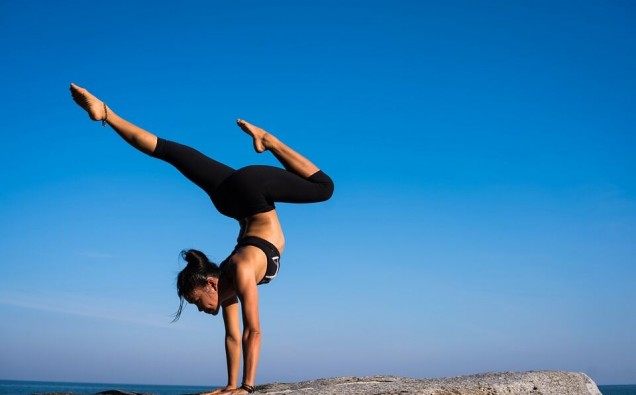As winter turns to spring and the days grow longer, it’s the perfect time to consider how you can lead a healthier lifestyle.
As winter turns to spring and the days grow longer, it’s the perfect time to consider how you can lead a healthier lifestyle.
But we don’t all have the time, energy or desire to commit to running a marathon or climbing mountains.
Here are 10 simple health tips from legal healthcare
Specialists Mistreatment.com for spring that almost anyone could choose to adopt:
1. Rise early – as sunrise gets earlier, hauling yourself out of bed early and getting outside can help boost your level of vitamin D, most of which we get from sunlight on our skin. Vitamin D helps to keep bones and teeth healthy and a lack of it can lead to rickets in children and increased risk of bone problems and fractures in older adults. Groups at risk of not getting enough vitamin D include pregnant and breastfeeding women, children under the age of five and people aged 65 and over.
2. Walk every day – walk the children to school, make part of your journey to work by foot or go for a stroll in your lunch hour. Regular walking helps reduce the risk of heart disease, type 2 diabetes, asthma, stroke and some cancers. It helps people lose weight and feel less stressed – and, of course, it’s free. Once spring arrives, there’s really no excuse not to walk. The NHS Choices website recommends trying to walk 10,000 steps a day to burn up to 400 calories and says most of us walk up to 4,000 steps a day anyway.
3. Take up yoga – some studies have suggested yoga can do more to improve lower back pain than conventional treatments. It can also relieve the pain and psychological distress suffered by patients with arthritis and may cut their risk of depression, according to a recent US review. Classes for all levels, including complete beginners, are now widely available at yoga schools. More confident practitioners may choose to perform their routine alone or in a small group in a park.
4. Get gardening – mowing the lawn, raking leaves and planting bulbs all count towards your recommended 150 minutes per week of moderate intensity physical exercise. The benefits of gardening in keeping the heart healthy have been recognised by the British Heart Foundation. Sir Richard Thompson, president of the Royal College of Physicians, has said doctors should “prescribe a course of gardening for people who come to them with depression or stroke”.
5. Eat seasonal produce – some of the healthiest vegetables come into season in spring. Asparagus is high in protein, low in calories and a rich source of various vitamins. It contains high levels of potassium, which may help to control blood pressure. At least one study has suggested it could also help to control blood sugar levels and fight type 2 diabetes. Spinach is rich in iron, which is key to helping red blood cells transport oxygen around the body. It is a good source of many vitamins, including vitamin K, which can help maintain bone and cartilage. A lack of vitamin K has been linked to osteoarthritis.
6. Wear sunglasses or a wide-brimmed hat – many of us may soon be reaching for such accessories to make a fashion statement. But doctors also advise doing so on sunny days to protect your eyes. UV rays can burn the eyes as well as the skin and skin cancer can affect the eyelids and area around the eyes. Long-term exposure to sunlight also increases the risk of a type of cataract and is linked to growths on the surface of the eye called pterygia. A wide-brimmed hat can reduce the amount of UV rays that reach your face and eyes. Good sunglasses should have the CE Mark, a UV 400 label or state that they offer 100pc UV protection.
7. Try swimming – a perfect choice for those wanting to get in shape but put off by the idea of sweating buckets in a gym or out running. Swimming strengthens the cardiovascular system, as well as improving joint flexibility and strengthening muscles. It can play an important role in recovering from operations ranging from breast to knee surgery, although it may not be recommended in the early stages and a doctor should be consulted first. Swimming can also boost mood and help control weight.
8. Or cycling – a low-impact exercise that can be done in the gym, in a spin class, out in the country or just on the way to work or the shops. Regular cycling strengthens your heart muscles, lowers your resting pulse and improves your lungs and circulation, reducing the risk of cardiovascular diseases such as stroke, high blood pressure and heart attacks. One US study of 18,000 women over 16 years found that riding a bike for just five minutes a day protects against weight gain. It also helps tone muscles, especially the calves, thighs and buttocks.
9. Boost your brain – use the new season to assess your diet and ensure you are getting enough of the right foods to aid brain and cognitive functions. Top ‘smart foods’ include blueberries for antioxidants and vitamin C, blackcurrants for vitamin C, oily fish such as salmon, mackerel and sardines for omega-3 fatty acids, nuts and seeds for vitamin E and wholegrain foods such as brown pasta and granary bread to give the brain a steady supply of energy through slow glucose release. Finally, don’t overlook water. Dehydration can shrink brain tissues and damage concentration.
10. Self-management of joint pain – if you have joint pain or arthritis, staying active can stop symptoms worsening and help protect against osteoporosis by keeping joints moving and ensuring muscles around the area remain strong. But self-management also means balancing rest with activity and not overdoing it. Exercising in the morning and warm baths or hot water bottles can reduce stiffness, while ice packs can reduce any swelling. Breathing exercises, meditation, acupuncture and massage may all have a role to play.
Presented by Mistreatment.com
For more Health articles, visit www.marieclaire.co.uk/life/health-fitness/

















